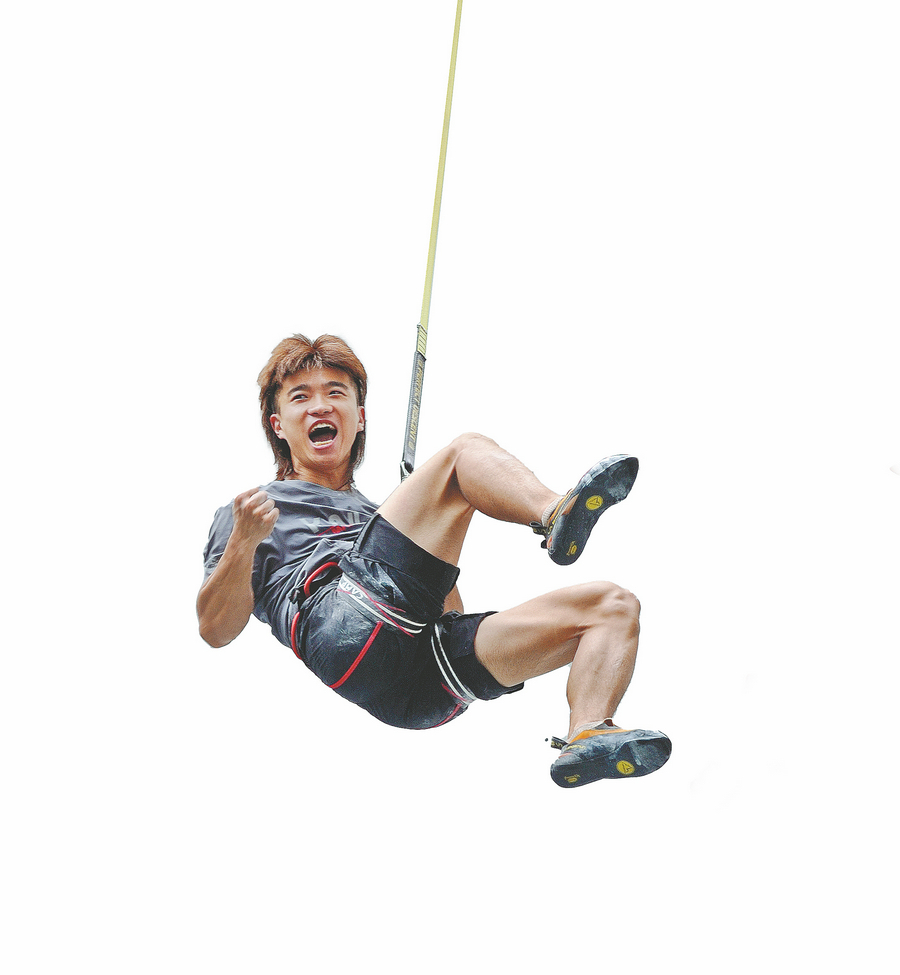

Like many kids who first get into climbing, Cao was mainly doing bouldering and lead climbing and was doing very well. He won a gold medal at the National Junior Climbing Championship when he was 10 and was certified as a national second-grade sportsperson when he was 14.
But not long after his certification, a severe accident happened. Cao fell from a 13-meter wall during training, breaking his lower back, left thigh, and dislocating his left wrist. After recovering from the accident, Cao went back to climbing despite protests from his family.
At the age of 18, Cao had to undergo another surgery after injuring his left arm in a competition.
It was after that surgery that Cao decided to give speed climbing a try because it requires different techniques from bouldering and lead climbing and puts less pressure on his previously injured body parts.
And it turns out that Cao was great at speed climbing as well, even though he thinks he is hardly the strongest athlete.
"When it comes to pull-ups, squats or dead lifts, I'm definitely not the one who can lift or pull the heaviest weight," he said.
"But I guess I'm better at carrying momentum and knowing the subtleties of each move, and I know how to better distribute power to different parts of my body."
Unlike the other two climbing disciplines — where routes are changed regularly and every competition is different — speed climbing routes are identical everywhere in the world, which means that climbers train on the exact same route every day. However, Cao doesn't find it to be boring.
"Training with my teammates makes it fun and exciting. And our coach Zhong Qixin, a five-time world champion, comments on each of our climbs and advises us on how we can improve," said Cao. "Also, advanced technology used to monitor our physical state and body data allows us to train more efficiently and effectively."
Now, Cao is training with the team at the Huairou National Mountaineering Training Base in Beijing, preparing for the Hangzhou Asian Games in September and the Paris Olympics in 2024. In his eyes, the national record of 4.98 seconds that he made a little over a month ago has become a thing of the past.
"As excited as I was at the result, it was just a one-time thing. The titles won't always stay with me if I just settle for what I have achieved up to now," said Cao. "I'll keep striving to do better and outdo myself."
Contact the writer at chenxue@i21st.cn